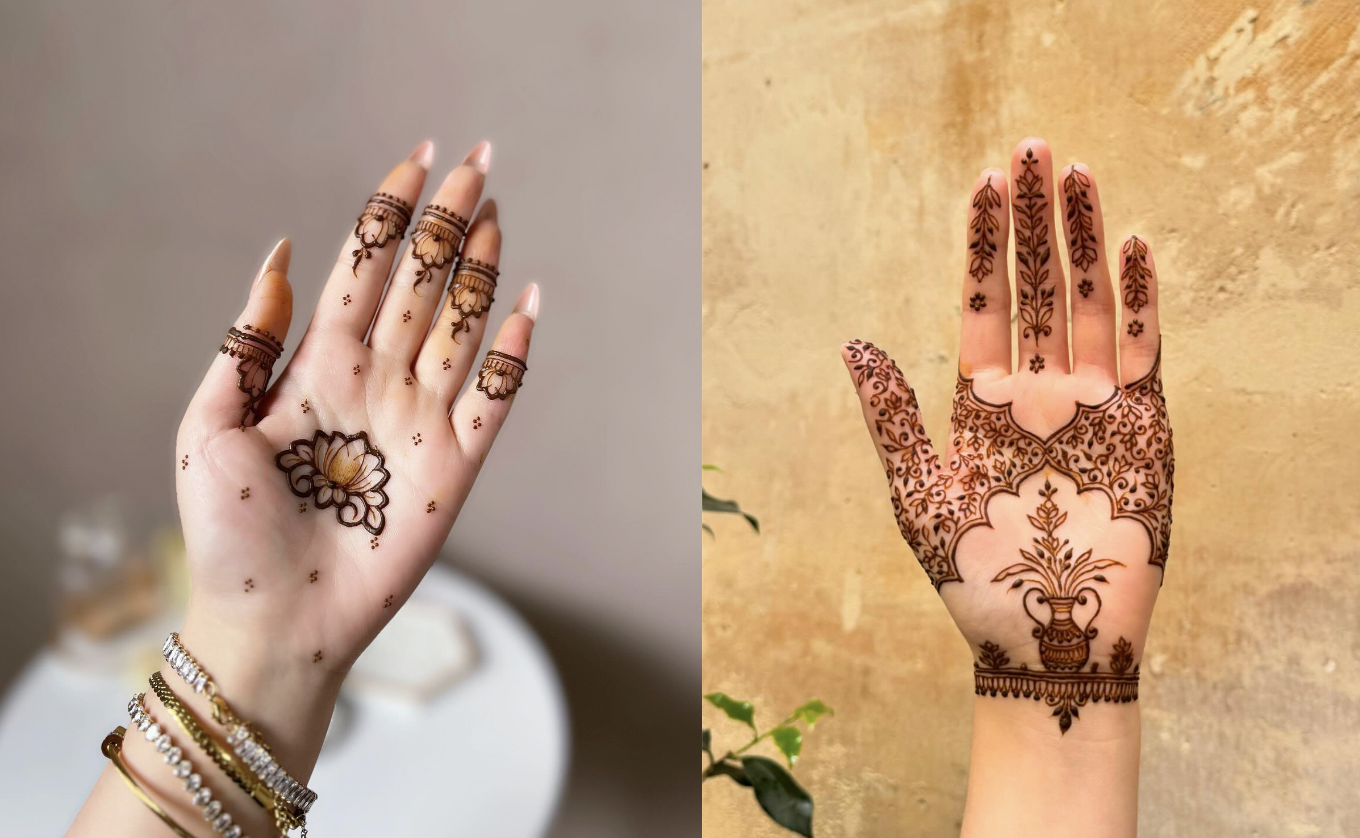Pre-Wedding Tips For Couples: Health & Wellness
Pre-Wedding SachiHealth and wellness play a pivotal role in the journey leading up to one's wedding day. For couples preparing to tie the knot, the pursuit of a healthy and balanced lifestyle is not merely a cosmetic choice, but an essential foundation for physical and emotional well-being during this transformative period. This article will delve into the critical aspects of health and wellness that brides and grooms should focus on in the lead-up to their wedding, namely diet plans, skincare routines, and stress management techniques.
First and foremost, a well-thought-out diet plan is imperative. While the desire to look and feel one's best on the big day is common, it's essential to approach this with a health-centered mindset. A balanced diet ensures the body receives the necessary nutrients for overall vitality, and it can help with weight management in a sustainable way. We will explore how to create a diet plan that aligns with individual goals and lifestyles while steering clear of crash diets that may have adverse effects.
Additionally, skincare routines are paramount in achieving that radiant bridal glow. Preparing the skin well in advance allows time for any issues to be addressed, such as acne, uneven tone, or dryness. The article will touch on skincare regimens tailored to different skin types, including recommended products and habits to adopt for that flawless complexion.
Lastly, the lead-up to a wedding can be a whirlwind of emotions and tasks, potentially leading to stress and anxiety. Effective stress management techniques are essential to ensure couples can enjoy the journey without feeling overwhelmed. We will explore strategies such as mindfulness practices, exercise, and seeking support from loved ones to help manage pre-wedding stress effectively.
Importance of Pre-Wedding Health and Wellness
Maintaining good health before the wedding is not just a matter of vanity; it's a fundamental step towards ensuring a joyful and memorable celebration. Here, we will delve into the reasons why prioritizing health is crucial in the lead-up to the big day, highlighting the benefits that extend far beyond mere appearances.

1. Looking Your Best: One of the most apparent reasons for focusing on health before a wedding is the desire to look one's best. Brides and grooms want to feel confident and radiant in their wedding attire. A healthy lifestyle can aid in achieving this. Eating well, getting regular exercise, and staying hydrated can contribute to weight management and clear, glowing skin. These physical attributes can boost self-esteem, creating a more positive self-image for the big day.
2. Feeling Energized: Wedding preparations are often a whirlwind of activities, from choosing venues and dresses to addressing invitations and managing guest lists. This can be physically and mentally taxing. Maintaining good health ensures that individuals have the energy and stamina to handle these tasks with enthusiasm and grace. Regular exercise and a balanced diet are key components of feeling energized, making it easier to manage the numerous demands of wedding planning.
3. Reducing Stress: The months leading up to a wedding can be stressful. The pressure to create a perfect day can lead to anxiety and tension. Good health practices, such as stress management techniques like meditation, yoga, or simply taking time for self-care, can significantly reduce stress levels. When stress is managed effectively, couples are more likely to enjoy the journey to their wedding and experience a more harmonious lead-up to the big day.
4. Boosting Immunity: A strong immune system is vital, especially as the wedding day approaches. Falling ill right before the wedding is a bride or groom's nightmare. A healthy lifestyle, including a well-balanced diet rich in vitamins and minerals, regular exercise, and adequate sleep, can bolster the immune system, reducing the risk of getting sick during this critical time.
5. Setting a Foundation for the Future: Beyond the wedding, good health practices established in the lead-up can set the tone for a happy, healthy marriage. Couples who prioritize their well-being together are more likely to continue these habits, promoting longevity and well-being in their life together.
Diet Plans
Balanced Nutrition
A balanced diet is the cornerstone of energy and vitality. It provides the body with essential nutrients, fueling physical and mental functions to ensure optimal health and well-being. Here, we'll discuss the importance of a balanced diet, foods to include, and those to avoid.

Source: Kiara Alia Advani
Importance of a Balanced Diet for Energy and Vitality:
1. Sustained Energy: A balanced diet offers a steady supply of energy throughout the day. Complex carbohydrates, found in foods like whole grains, fruits, and vegetables, release energy slowly, preventing energy crashes and keeping you alert and active.
2. Nutrient-Rich: It provides a wide range of nutrients, including vitamins, minerals, protein, and healthy fats, necessary for various bodily functions. These nutrients support everything from immune function to muscle repair and brain health.
3. Optimal Body Weight: A balanced diet helps in maintaining a healthy weight. It provides the necessary nutrients without excess calories, reducing the risk of obesity and related health issues.
4. Mental Clarity: Nutrient-dense foods like leafy greens, nuts, and fatty fish support cognitive function, memory, and mood stability. A well-nourished brain is essential for mental vitality.
Foods to Include in a Balanced Diet:
1. Fruits and Vegetables: Rich in vitamins, minerals, and antioxidants, these foods should make up a significant portion of your diet. Aim for a variety of colors to ensure a wide range of nutrients.
2. Whole Grains: Opt for whole grains like brown rice, quinoa, and oats instead of refined grains. They provide sustained energy and fiber for digestive health.
3. Lean Protein: Incorporate sources like poultry, fish, lean meats, tofu, beans, and legumes for muscle repair and overall body function.
4. Healthy Fats: Include sources of healthy fats like avocados, nuts, seeds, and olive oil. These fats support heart health and provide long-lasting energy.
5. Dairy or Dairy Alternatives: For calcium and vitamin D, consider dairy or fortified dairy alternatives like almond or soy milk.
Foods to Avoid or Limit:
1. Processed Foods: Highly processed foods often contain excessive sugars, unhealthy fats, and additives. Minimize their consumption.
2. Sugary Beverages: Sugary drinks like soda and excessive fruit juices can lead to weight gain and energy spikes followed by crashes.
3. Trans Fats: Avoid foods containing trans fats, often found in fried and packaged snack foods. They can contribute to heart disease.
4. Excess Sodium: High-sodium foods like canned soups, processed meats, and fast food can lead to hypertension and water retention.
Meal Planning
Meal planning and preparation are crucial components of maintaining a balanced diet and achieving health and vitality, especially for brides and grooms preparing for their wedding. Here are some tips for effective meal planning and sample meal plans to help couples get started on their journey to better nutrition.
Meal Planning Tips
1. Set Clear Goals: Determine your health and nutrition goals. Whether it's weight management, increased energy, or improved skin health, having clear objectives will guide your meal planning choices.
2. Create a Weekly Menu: Plan meals for the entire week, including breakfast, lunch, dinner, and snacks. This reduces the temptation to make unhealthy last-minute food choices.
3. Include Variety: Ensure your meals incorporate a variety of foods from different food groups to get a wide range of nutrients. Rotate protein sources, grains, and vegetables to keep meals interesting.
4. Prep in Advance: After planning your meals, do some meal prep. Chop vegetables, marinate proteins, or cook grains in advance to save time during the week.
5. Portion Control: Be mindful of portion sizes to prevent overeating. Use measuring cups and kitchen scales to gauge portions accurately.
6. Healthy Snacks: Plan for healthy snacks like nuts, yogurt, or fruit to satisfy cravings and keep energy levels stable between meals.
7. Read Labels: When shopping for packaged foods, read nutrition labels to make informed choices regarding added sugars, unhealthy fats, and artificial additives.
Sample Meal Plans for Brides and Grooms
Note: These meal plans are general examples and can be adjusted to individual preferences and dietary restrictions.
Day 1:
1. Breakfast: Greek yogurt with berries and honey.
2. Lunch: Grilled chicken salad with mixed greens, cherry tomatoes, and balsamic vinaigrette.
3. Snack: Sliced cucumber and hummus.
4. Dinner: Baked salmon with quinoa and steamed broccoli.
5. Snack: A small apple with a tablespoon of almond butter.
Day 2:
1. Breakfast: Oatmeal topped with sliced banana and a sprinkle of cinnamon.
2. Lunch: Quinoa bowl with chickpeas, roasted vegetables, and tahini dressing.
3. Snack: A handful of mixed nuts.
4. Dinner: Stir-fried tofu with brown rice and sautéed spinach.
5. Snack: Greek yogurt with a drizzle of honey.
Day 3:
1. Breakfast: Scrambled eggs with spinach and feta cheese.
2. Lunch: Turkey and avocado whole-grain wrap with a side of carrot sticks.
3. Snack: Sliced bell peppers with guacamole.
4. Dinner: Grilled shrimp skewers with quinoa and grilled asparagus.
5. Snack: Cottage cheese with pineapple chunks.
Day 4:
1. Breakfast: Whole-grain toast with avocado and poached eggs.
2. Lunch: Lentil soup with a side salad.
3. Snack: A banana and a handful of almonds.
4. Dinner: Baked chicken breast with sweet potato and green beans.
5. Snack: Sliced pear with a small piece of cheese.
Remember that these meal plans are just starting points. Adjust portion sizes and ingredients to suit your dietary preferences and nutritional goals. Additionally, consult with a healthcare professional or a registered dietitian for personalized guidance to ensure that your meal plan aligns with your specific health needs.
Hydration
Staying hydrated is essential for overall health and well-being. Water is a fundamental component of the human body, and it plays a vital role in various physiological processes. Here are some reasons why staying hydrated is crucial and tips for maintaining proper hydration:

Source: Adhi Studios
Importance of Staying Hydrated
1. Optimal Body Function: Water is involved in nearly every bodily function, including digestion, circulation, temperature regulation, and waste elimination. Adequate hydration ensures that these processes run smoothly.
2. Physical Performance: For athletes and individuals engaging in physical activities, proper hydration is vital for peak performance. Dehydration can lead to muscle cramps, reduced endurance, and decreased strength.
3. Cognitive Function: Staying hydrated is essential for maintaining cognitive function. Even mild dehydration can impair concentration, alertness, and short-term memory.
4. Skin Health: Hydration helps maintain healthy skin. Dehydrated skin can become dry, flaky, and more prone to wrinkles and skin disorders.
5. Digestion: Water is essential for digestion and the absorption of nutrients. It aids in breaking down food, making it easier for the body to extract essential nutrients.
Tips for Proper Hydration
1. Drink Water Regularly: Make it a habit to sip water throughout the day, even if you're not feeling thirsty. Thirst is often a sign that your body is already slightly dehydrated.
2. Set a Schedule: Establish a routine for drinking water. For example, you can aim to have a glass of water with every meal and snack.
3. Monitor Urine Color: Keep an eye on the color of your urine. Pale yellow or straw-colored urine is a good indicator of adequate hydration. Dark yellow or amber-colored urine may signal dehydration.
4. Incorporate Hydrating Foods: Eat foods with high water content, such as fruits (e.g., watermelon, cucumber) and vegetables (e.g., lettuce, celery). These can contribute to your daily fluid intake.
5. Avoid Excessive Caffeine and Alcohol: Both caffeine and alcohol can have diuretic effects, increasing fluid loss. If you consume these beverages, balance them with extra water intake.
6. Hydrate During Physical Activity: Drink water before, during, and after exercise to replace fluids lost through sweat. Sports drinks with electrolytes may be beneficial for prolonged or intense activities.
7. Stay Hydrated in Hot Weather: Hot and humid weather can lead to increased fluid loss through sweat. Drink more water in these conditions to stay adequately hydrated.
8. Listen to Your Body: Pay attention to your body's signals. If you feel thirsty, drink water. Thirst is a natural mechanism that indicates your body's need for fluid.
9. Proper hydration is a simple yet crucial aspect of maintaining good health. By staying mindful of your daily water intake and adopting these tips, you can ensure that your body remains well-hydrated, promoting overall well-being and optimal physical and cognitive performance.
Section 2: Skincare Routines
Bridal Skincare
A skincare routine leading up to your wedding is a key element to ensure you have that radiant bridal glow on your special day. Here's a guide for brides, detailing the skincare products to incorporate and those to avoid as you prepare for your wedding:

Skincare Routine
1. Cleansing: Begin each day and end each night with a gentle cleanser suitable for your skin type. This removes dirt, makeup, and impurities, setting the foundation for the rest of your skincare routine.
2. Exfoliation: Exfoliate your skin 2-3 times a week to remove dead skin cells and encourage cell turnover. Use a chemical exfoliant (like glycolic acid or lactic acid) or a mild physical exfoliant (like a soft scrub) to achieve a smoother complexion.
3. Serums: Apply a hydrating serum with ingredients like hyaluronic acid to boost moisture and plump your skin. In the morning, consider a vitamin C serum for added brightness, and at night, use a serum with ingredients like retinol for skin renewal.
4. Moisturizing: Keep your skin well-hydrated with a suitable moisturizer. Choose one that suits your skin type, whether it's oily, dry, or sensitive.
5. Sunscreen: Sun protection is crucial. Apply a broad-spectrum sunscreen with at least SPF 30 every morning, even on cloudy days. Sunscreen helps prevent premature aging and protects against skin damage.
6. Eye Cream: If you have concerns about puffiness, dark circles, or fine lines around the eyes, use a hydrating eye cream. This can help you look refreshed and well-rested.
7. Masks: Consider using hydrating or clarifying masks as needed. Clay masks can help with deep cleansing, while sheet masks can provide an extra boost of hydration and radiance.
Products to Avoid
1. Harsh Scrubs: Avoid abrasive physical scrubs with large, jagged particles as they can damage the skin. Opt for gentler exfoliation methods.
2. Fragranced Products: Products with added fragrances can irritate sensitive skin. Opt for fragrance-free options to reduce the risk of skin reactions.
3. Alcohol-Based Products: Avoid skincare products that contain high levels of alcohol, as they can be drying and may disrupt your skin's moisture balance.
4. New Products Too Close to the Wedding: It's not recommended to introduce entirely new skincare products or treatments in the weeks leading up to the wedding. Stick to your established routine to prevent potential reactions or breakouts.
5. Excessive Tanning: Overexposure to the sun or tanning beds can cause skin damage and premature aging. It's best to avoid excessive tanning leading up to your wedding.
Groom Skincare
Skincare is not just for brides; grooms can benefit from a solid skincare routine as well. A well-maintained complexion not only enhances your appearance but also boosts your confidence on your big day. Here are skincare essentials for men, along with recommended products and routines:

Source: Masson Liang Photography
Skincare Essentials for Grooms
1. Cleanser: Start with a gentle facial cleanser that suits your skin type. Cleansing removes dirt, oil, and impurities, preventing breakouts and dullness.
2. Exfoliator: Exfoliation helps slough off dead skin cells, promoting a brighter complexion. Choose an exfoliating product, like a scrub or chemical exfoliant, and use it 1-2 times a week.
3. Moisturizer: Hydrating your skin is crucial. Opt for a moisturizer that hydrates without making your skin greasy. Look for one with SPF for added sun protection.
4. Sunscreen: Sunscreen is a must to protect your skin from harmful UV rays. Choose a broad-spectrum sunscreen with at least SPF 30 and apply it daily, even on cloudy days.
5. Eye Cream: If you have concerns about dark circles or puffiness around your eyes, consider using an eye cream. Look for ingredients like hyaluronic acid and peptides.
Recommended Skincare Routine for Grooms:
Morning Routine:
1. Cleanser: Start your day by cleansing your face to remove overnight buildup.
2. Toner (optional): Use a toner to balance your skin's pH levels, but this step is optional for many men.
3. Moisturizer with SPF: Apply a moisturizer with SPF to protect your skin from sun damage. Ensure even coverage, especially on your face, neck, and ears.
Evening Routine:
1. Cleanser: Cleanse your face again to remove dirt and pollutants accumulated during the day.
2. Exfoliation (1-2 times a week): Exfoliate to remove dead skin cells and promote cell turnover. Don't overdo it; once or twice a week is enough.
3. Serum (optional): Consider using a serum with ingredients like vitamin C or hyaluronic acid to address specific skin concerns.
4. Eye Cream: Apply a small amount of eye cream gently around the eye area.
5. Moisturizer: Finish with a hydrating moisturizer to lock in moisture overnight.
Remember that consistency is key. Stick to your skincare routine for several weeks to see noticeable improvements. Also, consult with a dermatologist if you have specific skin issues or concerns.
General Tips
Taking care of your skin through practices like sunscreen application, moisturizing, and exfoliation is essential for maintaining a healthy and radiant complexion. Here's why these skincare steps are crucial and some DIY remedies for each:

Importance of Sunscreen
Sunscreen is your skin's best defense against harmful UV rays. Here's why it's essential:
1. Protection from UV Damage: UV rays from the sun can lead to premature aging, wrinkles, and an increased risk of skin cancer. Sunscreen forms a protective barrier, shielding your skin from these harmful effects.
2. Prevents Hyperpigmentation: Sunscreen helps prevent the formation of dark spots and uneven skin tone caused by sun exposure.
3. Skin Cancer Prevention: Regular use of sunscreen significantly reduces the risk of skin cancer, including melanoma, the deadliest form of skin cancer.
Importance of Moisturizing
Moisturizing is crucial for maintaining skin health and preventing various skin issues:
1. Hydration: Moisturizers lock in moisture, keeping your skin hydrated and preventing dryness, flakiness, and irritation.
2. Barrier Function: A moisturizer strengthens your skin's protective barrier, making it more resilient to environmental factors like pollution and harsh weather.
3. Anti-Aging: Proper hydration helps reduce the appearance of fine lines and wrinkles, giving your skin a more youthful and supple appearance.
Importance of Exfoliation
Exfoliation involves removing dead skin cells, and it offers several benefits:
1. Improved Texture: Regular exfoliation leaves your skin smoother, softer, and more radiant by getting rid of dull, dead skin.
2. Unclogged Pores: It helps prevent acne and blackheads by keeping your pores clear and minimizing their appearance.
3. Enhanced Product Absorption: Exfoliated skin absorbs skincare products more effectively, maximizing their benefits.
DIY Skincare Remedies
1. DIY Sunscreen: While not a substitute for commercial sunscreen, you can make a natural sunscreen using zinc oxide, coconut oil, and shea butter. However, it's important to note that the effectiveness of homemade sunscreen may not match that of commercially available products.
2. Homemade Moisturizer: Combine aloe vera gel with a few drops of jojoba oil and lavender essential oil for a soothing, hydrating moisturizer.
3. DIY Exfoliator: Create a gentle exfoliator using sugar (for physical exfoliation) and honey (for moisture and antibacterial properties). Apply in a circular motion and rinse thoroughly.
While DIY remedies can be fun and cost-effective, it's crucial to use them with caution and not as a replacement for professionally formulated skincare products. Consult with a dermatologist for personalized skincare advice and product recommendations, especially if you have specific skin concerns or conditions.
Section 3: Stress Management Techniques
Exercise and Physical Activity
Exercise plays a pivotal role in stress reduction by promoting physical and mental well-being. Engaging in regular physical activity has a profound impact on stress management, primarily through the following mechanisms:
1. Endorphin Release: Exercise stimulates the release of endorphins, which are natural mood elevators. These "feel-good" chemicals reduce stress and induce a sense of well-being.
2. Stress Hormone Regulation: Physical activity helps regulate stress hormones like cortisol. It can lower cortisol levels, which are elevated during periods of chronic stress.
3. Improved Sleep: Regular exercise enhances the quality of sleep, reducing sleep disturbances often associated with stress. Adequate sleep is crucial for stress recovery.
4. Muscle Relaxation: Exercise promotes muscle relaxation, reducing physical tension that often accompanies stress.
5. Enhanced Coping Mechanisms: Through exercise, individuals develop a sense of control and mastery, improving their ability to cope with stressors effectively.
Recommended Types of Exercise
1. Aerobic Exercise: Activities like running, cycling, swimming, and brisk walking elevate the heart rate, promoting cardiovascular health and reducing stress. Aim for at least 150 minutes of moderate-intensity aerobic exercise per week.
2. Yoga: Combining physical postures, breathing exercises, and meditation, yoga helps calm the mind and relieve stress. It improves flexibility and promotes relaxation.
3. Strength Training: Resistance exercises with weights or resistance bands build muscle, improve posture, and boost self-esteem, all of which contribute to stress reduction.
4. Tai Chi: This gentle form of martial arts combines movement and mindfulness, enhancing relaxation and reducing stress.
5. Mindfulness-Based Practices: Activities like meditation and deep breathing exercises are valuable for reducing stress and increasing mindfulness, helping individuals better manage life's challenges.
6. Group Exercise Classes: Engaging in group activities like dance, spinning, or team sports can provide social support and a sense of community, reducing feelings of isolation and stress.
Ultimately, the choice of exercise should align with individual preferences and physical capabilities. The key is consistency; regular exercise, regardless of the type, can significantly contribute to stress reduction, leading to improved overall well-being.
Mindfulness and Meditation
Mindfulness and meditation are powerful tools for managing stress by fostering mental clarity, emotional balance, and a sense of inner calm. These practices encourage you to stay present in the moment, which can alleviate anxiety about the past or future. Here's how mindfulness and meditation can help, along with some simple techniques to get started:
Benefits of Mindfulness and Meditation for Stress Management
1. Stress Reduction: Mindfulness and meditation techniques help you become more aware of your thoughts and feelings, allowing you to respond to stressors in a calm and thoughtful manner.
2. Emotional Regulation: These practices promote emotional awareness and control, reducing the intensity of negative emotions often associated with stress.
3. Improved Focus: Mindfulness and meditation sharpen your attention and concentration, making it easier to handle tasks and responsibilities effectively, which can alleviate the stress caused by feeling overwhelmed.
4. Relaxation Response: Engaging in these practices triggers the relaxation response in your body, reducing the production of stress hormones like cortisol and inducing a state of physical and mental relaxation.
5. Enhanced Coping Mechanisms: Mindfulness and meditation equip you with tools to navigate life's challenges more resiliently, fostering adaptability and problem-solving skills.
Simple Techniques to Practice
1. Mindful Breathing: Find a quiet space and sit or lie down comfortably. Close your eyes and focus your attention on your breath. Notice the sensation of each inhale and exhale without trying to change it. If your mind wanders, gently bring your focus back to your breath. Start with 5-10 minutes and gradually increase the duration.
2. Body Scan: Lie down with your eyes closed and mentally scan your body from head to toe. Pay attention to any areas of tension or discomfort, and consciously release it as you breathe out.
3. Guided Meditation: Use guided meditation apps or recordings that lead you through a meditation session. Many apps offer various meditation styles, making it easy to find one that suits your preferences.
4. Mindful Walking: Take a leisurely walk outdoors and focus on the sensations of walking—the movement of your legs, the feeling of your feet on the ground, and the sounds around you. This can be a refreshing way to incorporate mindfulness into your daily routine.
5. Breathing Techniques: Practice controlled breathing exercises, such as the 4-7-8 technique. Inhale for a count of four, hold for a count of seven, and exhale for a count of eight. This can help calm your nervous system.
Incorporating mindfulness and meditation into your daily life can be a transformative way to manage stress. Consistent practice allows you to build resilience, cultivate a sense of inner peace, and face life's challenges with greater equanimity. Start with simple techniques and gradually increase your practice as you become more comfortable with the process.
Time Management
Managing wedding planning alongside personal care is crucial for maintaining your well-being during this exciting yet potentially stressful time. Here are some tips to help you strike a balance:
1. Prioritize Self-Care: Make self-care non-negotiable. Schedule time for relaxation, exercise, and activities that bring you joy. A well-rested and emotionally balanced you will be better equipped to handle wedding tasks.
2. Set Realistic Expectations: Be realistic about what you can accomplish. Wedding planning is a significant undertaking, so don't overcommit yourself to other responsibilities. Understand that it's okay to ask for help.
3. Delegate Tasks: Delegation is essential. Assign wedding-related tasks to trusted friends, family members, or a wedding planner if possible. Sharing the workload can alleviate stress and allow you to focus on self-care.
4. Time Management: Create a wedding planning timeline with specific deadlines. Allocate dedicated blocks of time for wedding tasks and personal care. Stick to this schedule as closely as possible.
5. Communication: Open and honest communication with your partner is key. Discuss your personal care needs and how you can support each other in maintaining well-being during the planning process.
6. Practice Stress Reduction: Incorporate stress-reduction techniques into your routine, such as meditation, deep breathing exercises, or mindfulness. These practices can help you stay centered and calm amidst the chaos.
7. Seek Professional Help: If the wedding planning process becomes overwhelming, consider consulting a therapist or counselor. They can provide coping strategies and emotional support.
Section 4: Professional Help

Source: Sonam Kapoor Ahuja
Nutritionists and Dietitians
Consider consulting a professional for diet planning when you have specific health goals, dietary restrictions, or medical conditions. This includes weight management, chronic diseases, allergies, or when seeking guidance for a balanced and sustainable eating plan. A registered dietitian or nutritionist can provide personalized recommendations based on your unique needs and lifestyle, ensuring safe and effective dietary choices. Professional guidance can also be invaluable if you're uncertain about food choices, experiencing digestive issues, or require nutrition support during pregnancy, athletic training, or recovery from an illness. Consulting a professional ensures that your dietary plan aligns with your health objectives and promotes overall well-being.
Dermatologists
Seek professional skincare advice when you encounter persistent skin issues like acne, rosacea, severe dryness, or signs of premature aging that over-the-counter products haven't effectively addressed. Additionally, consult a dermatologist if you notice sudden or concerning changes in moles, pigmentation, or skin texture, as these can indicate more serious conditions. It's wise to seek expert guidance for a personalized skincare regimen, especially if you have unique skin concerns or specific skin conditions that require medical attention. A dermatologist can provide tailored recommendations and treatments to ensure the health and appearance of your skin.
Therapists and Counselors
Mental health professionals play a crucial role in stress management by providing individuals with the necessary tools and guidance to cope with stressors effectively. They offer therapy, counseling, and interventions that address underlying emotional and psychological issues contributing to stress. Through evidence-based techniques and personalized strategies, mental health professionals help individuals develop resilience, reduce anxiety, and improve overall well-being. Their expertise is invaluable in promoting healthier coping mechanisms and preventing the escalation of stress into more severe mental health conditions.
Conclusion
The article emphasizes the importance of prioritizing health and wellness during wedding preparations, highlighting diet plans, skincare routines, and stress management techniques. It underscores that looking and feeling one's best goes beyond aesthetics, influencing overall well-being. By focusing on balanced nutrition, effective skincare, and stress reduction, couples can embark on their marriage journey with vitality and positivity. We encourage readers to invest in self-care and maintain a strong foundation of health as they prepare for their significant day, ensuring a beautiful start to their lifelong commitment.
Edited & Photo Sourced By: Neha Garg Ahuja














